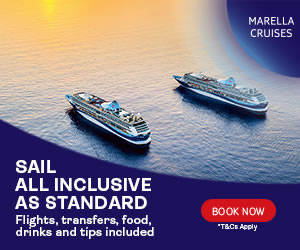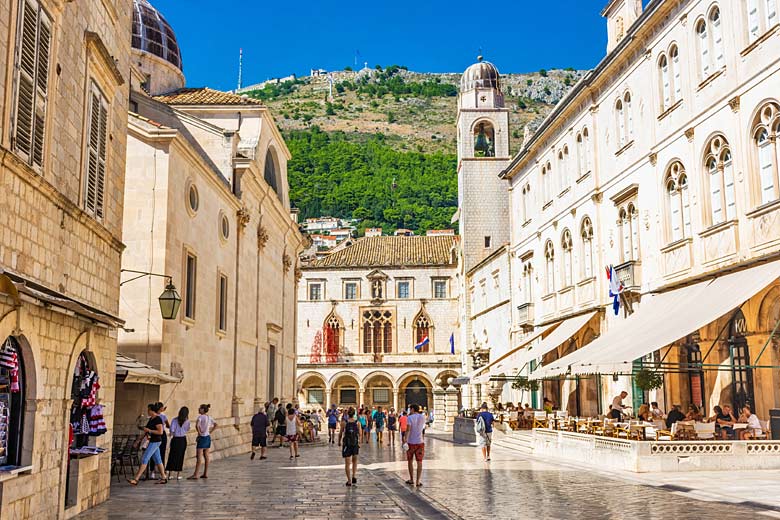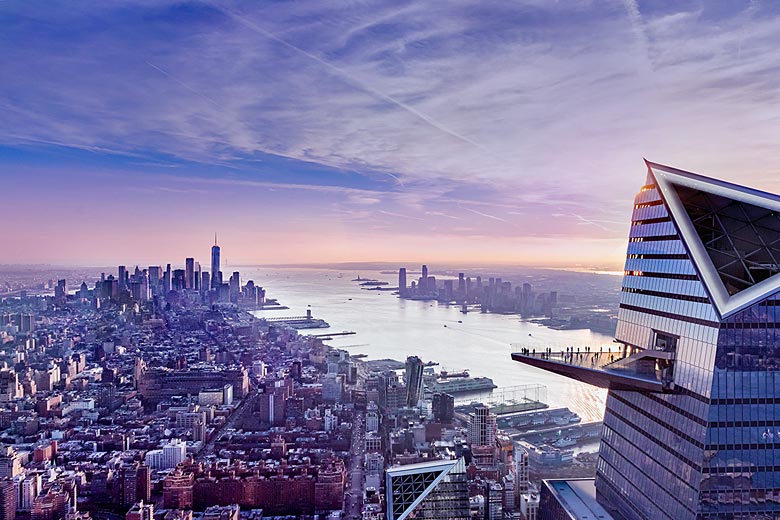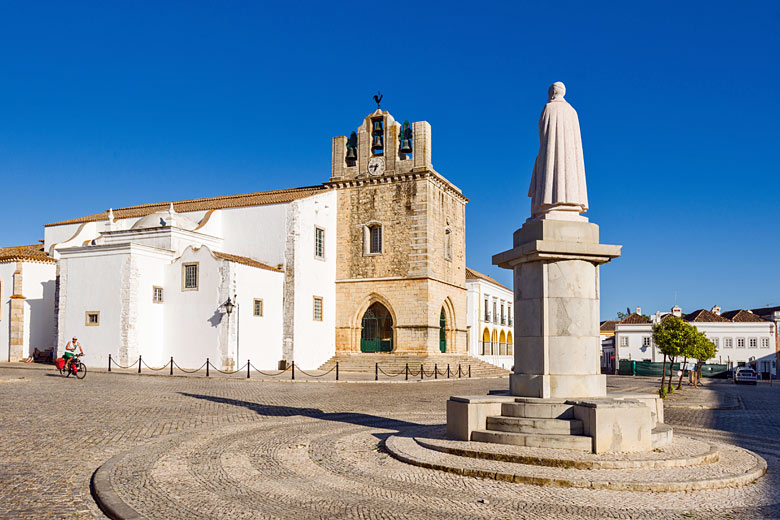An introduction to Colombo, Sri Lanka's colourful capital
Step foot in the Sri Lankan capital of Colombo* and you'll soon be surrounded by tuk-tuks, trucks, minibuses and scooters whizzing past against a chorus of car horns.
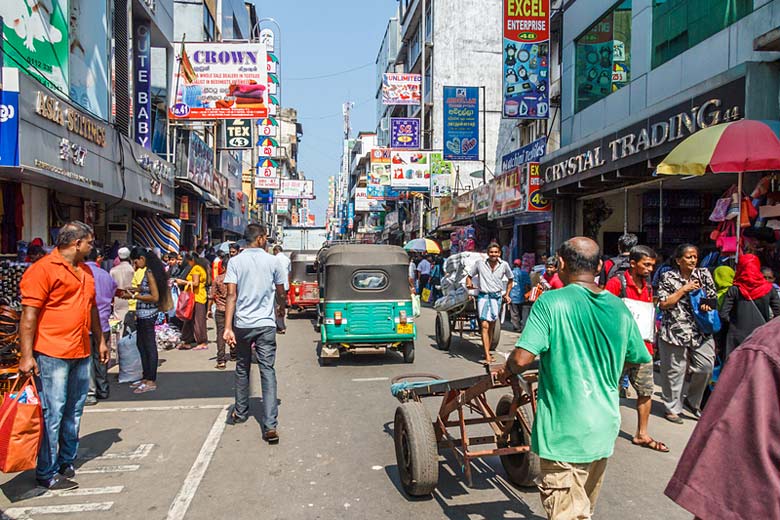
In this vibrant city, temples, mosques, food stalls, shops and remnants of colonial times are all common sights and it's a lively place to get stuck into. Here we give you the briefest of introduction to the leading city in Sri Lanka*, and gateway to its countless natural and man-made wonders.
Getting to Colombo: check out the latest offers on itineraries* that include a stop at Colombo with Marella Cruises.
A feast for the senses
A man cycles by, his wife and two little children perched on the bike rack. A Buddhist monk sits on a bench. Someone comes over and offers him a drink, another stoops down to show their respects. Later, another lowers to the ground to kiss his feet.
Excuse the cliché, but as Sri Lanka's largest city and a wonderful conglomeration of historic monuments, street markets, modern shopping malls, cafés and fab restaurants, you are continually guaranteed a feast for the senses in Colombo.
Diverse communities
With a population of 5.6 million, a quarter of the national total, fast-paced Colombo is home to a diverse range of communities, including Buddhist, Muslim, Sinhalese and Tamil.
With an awesome array of Buddhist temples, mosques, Portuguese, Dutch and British colonial buildings and modern skyscrapers, it is endlessly fascinating at every turn.
Situated on a natural harbour on the island's west coast, it doesn't have one single focal point but is instead an assemblage of different neighbourhoods, each with its own distinct personality.
Cinnamon Gardens
The most prestigious is Cinnamon Gardens, with colonial-era villas and mansions, swish hotels and galleries, the Prime Minister's office, Town Hall and Independence Memorial Hall on Independence Square, the latter two commemorating when Sri Lanka gained its independence from the UK in 1948.
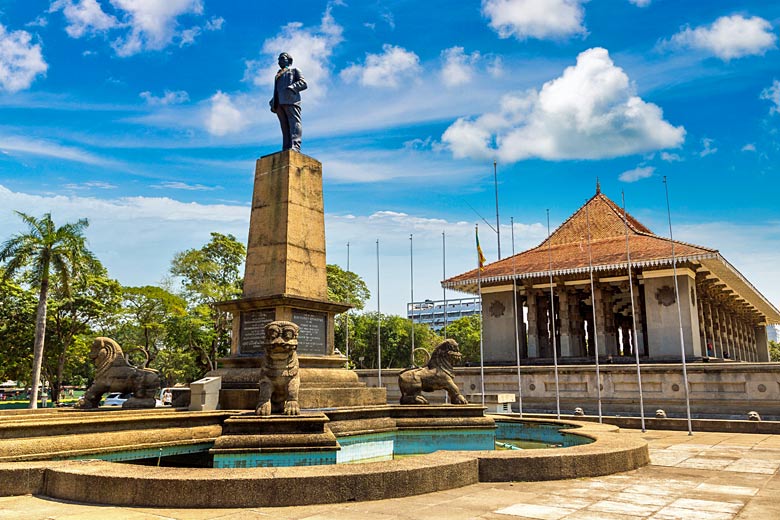
Sri Lanka Planetarium is here, a striking 1965 building with a 570-seat auditorium with a digital fully-spherical projector showing inspiring space exploration presentations.
Leading museums
Colombo National Museum is also in the Cinnamon Gardens District. It is a great introduction to the country's history, architecture and culture, from prehistoric times to the Kandyan era from 1597 to 1815.
Set in a palatial neoclassical building surrounded by lush green lawns, it contains everything from antique puppetry and demon masks to Hindu and Buddhist bronzes, plus the 8th-century Toluvila Buddha, a striking 1.75m-tall crystalline-limestone statue discovered in 1900.
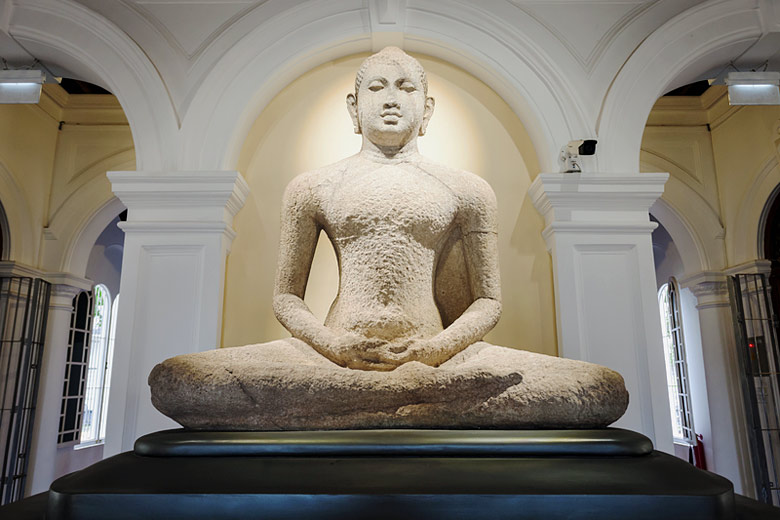
It also houses the island's principal library, the National Museum of Natural History and the National Art Gallery here too.
A welcomed dose of greenery
It's bounded to the north by Viharamahadevi Park, which is an ideal detour should you want a dose of tranquil greenery in the bustling centre. With waterfalls, walking trails and a mini zoo, it's a good sunset spot.
Meanwhile, oceanfront urban park Galle Face Green, almost a kilometre long, is another good spot for enjoying the sunset, and indeed the colonial-era Galle Face Hotel is an excellent choice for a sundowner overlooking the Indian Ocean.
There are numerous stalls selling food, drinks, toys and trinkets, and it's a popular spot for kite-flying, football, beach volleyball and other games, especially when the locals promenade here each evening.
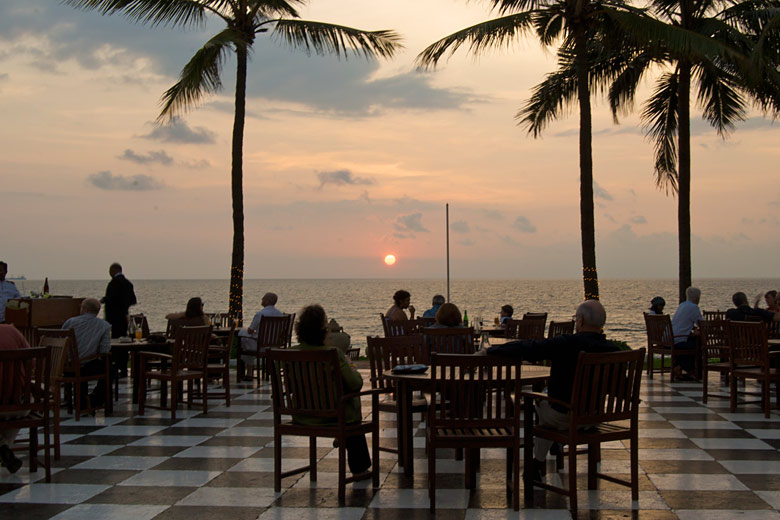
At the north end of Galle Face, you'll find the Old Parliament Building, an imposing neo-Baroque brownstone building dating from 1930. Now home to the Presidential Secretariat, it contrasts sharply with the modern Bank of Ceylon tower behind it.
The Fort District
Over in the Fort District, Colombo's most historic neighbourhood, you'll find British and Dutch buildings from the colonial era such as the Town Hall and Post Office, as well as modern skyscrapers.
The Old Dutch Hospital, dating from the time of Dutch rule (1658 to 1796), is a great spot to have lunch, as there are restaurants, cafés and shops here.
A must-see sight in the Fort District is 19th-century Gangaramaya Temple, a Buddhist place of worship that blends intricate Indian, Chinese and Thai architecture. Located close to Beira Lake, it has relics, statues, murals and a pagoda.
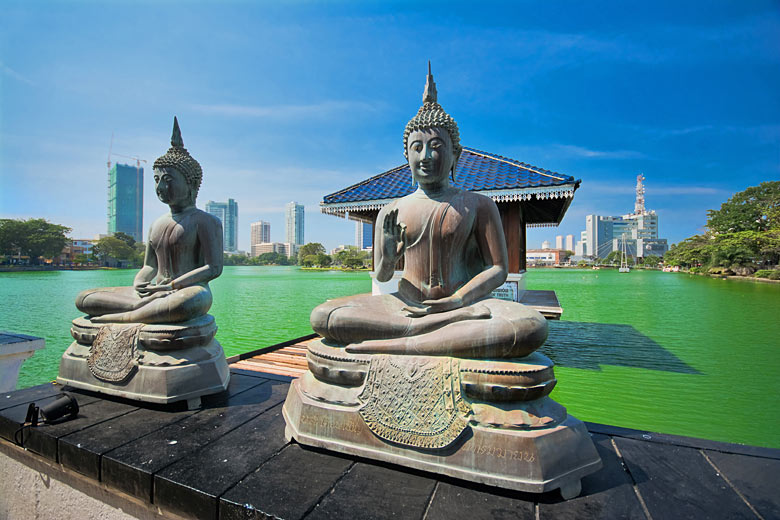
The lake itself is a popular boating spot, and its residents include storks and pelicans. It has a little island at its centre, graced by another Buddhist temple, Seema Malaka. Like Gangaramaya Temple, it is free to visit. The lake connects with other lakes via canals and ends up in the Indian Ocean.
Pettah
East of the Fort area is the Pettah District, containing a sprawling, hectic bazaar spread over streets packed with stalls and shops selling everything from fabrics to fruits, mundane household items to handicrafts, souvenirs, gold, jewellery and electrical items.
Amongst the tuk-tuks and trucks, porters and carts, are mosques, Hindu temples, churches and restaurants. There's also a floating market, and this section of the city provides a great glimpse into the day-to-day life of the local population.
For rather more tranquil shopping, malls, such as Colombo City Centre, One Galle Face and Marino, offer a mixture of local shops and international brands.
The Sri Lanka Handicrafts Board's state-owned gift and souvenir shop Laksala sells authentic handicrafts including wonderful papier-mâché elephants and dancers, hand-loomed cushion covers and colourful wooden masks. Look out for the branch at the National Museum.
Spacious boutique Lakpahana is another option for art and crafts made by local artists.
The outstanding cuisine
Sri Lanka's cuisine is outstanding, and Colombo the best place to experience it, from delicious local Sinhalese street food to ornate meat and vegetarian curries, and numerous other traditional specialities such as watalappan, a rich coconut, cardamom and cashew custard.
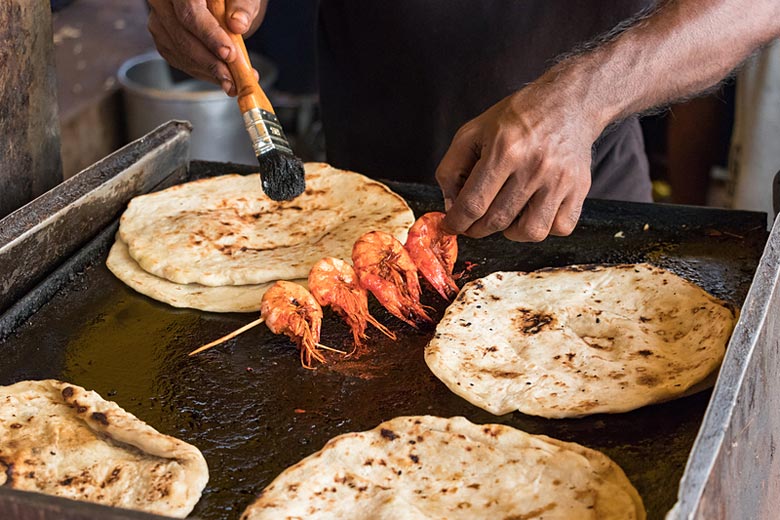
There's also a huge choice of restaurants and cafés for sampling European, Indian, Chinese and other Asian cuisines. The Pettah District, Galle Road and Slave Island all have a particularly rich choice of street stalls, cafés and restaurants.
Fortunately, Colombo has a low crime rate and prices are generally low. One of the best experiences in this city is one of the cheapest of all: an exhilarating 10-minute tuk-tuk ride, and it will only set you back around a pound or dollar. It will certainly be far more memorable than any Uber ride you ever take; hold on tight!
Weather in Colombo
| Jan | Feb | Mar | Apr | May | Jun | Jul | Aug | Sep | Oct | Nov | Dec | |
|---|---|---|---|---|---|---|---|---|---|---|---|---|
| Maximum daytime temperature °F | ||||||||||||
| Hours of sunshine (daily) | ||||||||||||
| Days with some rainfall | ||||||||||||
| Sea temperature °F |
The above guide shows the weather in Colombo. Find out more about conditions across the country in our complete guide to the weather in Sri Lanka.
Ready to explore Colombo? Don't miss the latest offers on itineraries with Marella Cruises.
More about Colombo
- Overview
- Best time to visit
- Weather by month
- 5-day weather forecast
- Destinations
- Travel advice
- Deals & discounts
Colombo by month
Jan Feb Mar Apr May Jun Jul Aug Sep Oct Nov Dec
Explore holidays in the sun for less
- Beach holidays
- Family holidays
- City breaks
- Summer holidays
- Winter sun holidays
- Holiday offers
- Top travel brands
- Airlines & flights
- Discount hotels
- Airport parking deals
- TUI
- Jet2holidays
- easyJet holidays
- Love Holidays
- British Airways
Airport parking
- Manchester Airport
- Stansted Airport
- Bristol Airport
- Luton Airport
- Birmingham Airport
- Edinburgh Airport
- Gatwick Airport
- Glasgow Airport
- Newcastle Airport
Airport lounges
- Manchester Airport
- Birmingham Airport
- Bristol Airport
- Edinburgh Airport
- Glasgow Airport
- Heathrow Airport
- Newcastle Airport
- Stansted Airport
- Gatwick Airport
Be inspired
Get your weekly fix of holiday inspiration from some of the world's best travel writers plus save on your next trip with the latest exclusive offers
We promise not to share your details
















